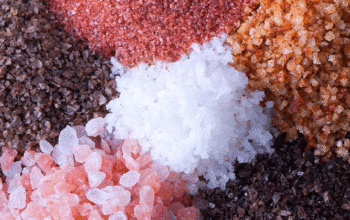Our hair is more than just a cosmetic feature – it can be a powerful indicator of our overall health. Changes in hair texture, thickness, or appearance often signal underlying medical conditions that require attention. Understanding these signals can help you detect potential health issues early and seek appropriate medical guidance.
Hair Loss and Thinning: More Than Just Aesthetic Concerns
Hair loss is rarely just about appearance. It can be a critical symptom of various health conditions. For instance, sudden or significant hair thinning might indicate:
- Hormonal imbalances
- Nutritional deficiencies
- Thyroid dysfunction
- Autoimmune disorders
According to the American Academy of Dermatology, approximately 80 million Americans experience androgenetic alopecia, a common form of hair loss that can be linked to broader health issues.
Nutritional Deficiencies: The Hidden Impact on Hair Health
Your hair’s condition is often a direct reflection of your nutritional status. Deficiencies in key nutrients can dramatically affect hair health:
- Iron: Low iron levels can cause significant hair loss, affecting up to 70% of women
- Vitamin D: Critical for hair follicle cycling and growth
- Zinc: Essential for hair tissue growth and repair
- Biotin: Supports keratin production, a key hair protein
Hormonal Imbalances: Silent Disruptors of Hair Health
Hormones play a crucial role in hair growth and maintenance. Conditions like thyroid disorders can significantly impact hair health:
- Hypothyroidism can cause widespread hair thinning
- Hyperthyroidism might lead to brittle, fragile hair
- Polycystic ovary syndrome (PCOS) can trigger hormonal hair loss
The American Thyroid Association reports that approximately 20 million Americans have some form of thyroid disease, many of whom experience hair-related symptoms.
Autoimmune Diseases and Hair Health
Certain autoimmune conditions directly impact hair growth and retention. Alopecia areata, an autoimmune disorder, causes patchy hair loss and affects approximately 6.8 million people in the United States.
Other autoimmune conditions that can affect hair include:
- Lupus
- Rheumatoid arthritis
- Hashimoto’s thyroiditis
Scalp Conditions: Beyond Cosmetic Concerns
Skin conditions like psoriasis and eczema don’t just affect your skin – they can significantly impact hair health. The National Psoriasis Foundation notes that psoriasis affects about 3% of the U.S. population and can lead to:
- Scalp inflammation
- Temporary hair loss
- Increased scalp sensitivity
Proactive Hair and Health Management
To maintain healthy hair and detect potential health issues early, consider these tips:
- Eat a balanced diet rich in proteins, vitamins, and minerals
- Stay hydrated
- Minimize heat and chemical styling
- Regular medical check-ups
- Monitor significant changes in hair texture or density
When to Seek Professional Help
Consult a healthcare professional if you experience:
- Sudden or patchy hair loss
- Scalp inflammation or persistent itching
- Significant changes in hair texture
- Hair loss accompanied by other symptoms
Remember, your hair is more than a fashion statement – it’s a window into your overall health. By paying attention to its condition and seeking professional guidance when needed, you can catch potential health issues early and take proactive steps toward maintaining your well-being.





